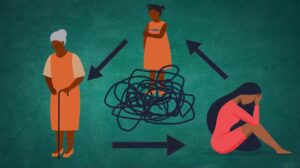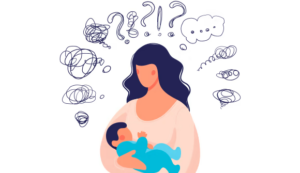“Early to bed and early to rise, makes a man happy, healthy and wise.” Quoted by Benjamin Franklin emphasizes the importance of a healthy lifestyle.
But what if you do not get sleep and are awake till the wee hours of the morning. We want to sleep but our brain tells us “No, stay awake and remember every stupid decision you made in your life.” And you reply back saying “okay”.
Sleep is vital to our overall health as food, water, and oxygen. We simply cannot live without it.
Do you know one in three people in the world suffers from brief insomnia symptoms and one in ten people in the world suffers from chronic insomnia symptoms?
How it can be treated?
Insomnia impacts our state of mind, our thinking, and our physical health.
Depressed mood, irritability, and poor concentration are some of the specific problems that can get in the way of sleeping well.
Insomnia can cause other mental health problems and other mental health problems can cause Insomnia. It is a vicious cycle. This can be treated by CBT (Cognitive Behavioural Therapy) for Insomnia.
Some people take medicines but CBT for Insomnia is a long-term solution to your mental health needs.
So what is Insomnia?
Insomnia is essentially a problem or complete inability to sleep off or keep asleep for long. Insomnia sufferers are not satisfied with their sleep patterns and may often find themselves experiencing fatigue, low energy, difficulty in concentrating, mood swings, depression, and lower performance in school or work.
There are two categories of insomnia: Primary and Secondary.
A primary sleep disorder is when the person has hassle falling asleep without a deeper health issue being the trigger.
Secondary sleep disorder is when the sufferer experiences sleep problems owing to an underlying health condition like asthma, diabetes, depression, body pains, etc.
Consuming drugs, alcohol, or psychotropic substances also result in insomnia.
Insomnia can also vary depending on how long it lasts and how often it happens.
Based on that, it can either be short-term or last only a few days or last long term which leads to chronic insomnia cases.
The causes are actually many. Some are physical and psychological as mentioned above.
For people with mental illnesses like depression, schizophrenia, anxiety disorder, or bipolar disorder, living a healthy normal life is already challenging; throwing insomnia could be downright impossible.
Unfortunately, as many as eighty percent of patients with major depression, seventy-seven percent of patients with bipolar disorder, and seventy percent of patients with post-traumatic stress disorder also report sleep problems.
In cases such as these where mental illnesses are already diagnosed, insomnia is usually considered a symptom of the pre-existing condition.
New evidence suggests that over time insomnia may be a cause of mental illness.
Let us look at how such cases of insomnia can be treated?
- CBT-I: Cognitive Behavioural Therapy for Insomnia or CBT-I is an evidence-based therapy that has been shown to help people recover from insomnia and resume healthy sleeping patterns.
CBT-I focuses on how the things we do during the daytime impact our sleep. This includes what we eat and drink, when and how much we exercise caffeine or nicotine use, and our overall daily schedule.
Naps, screen time, and bedtime routines are also important parts of healthy sleep.
In CBT-I, they use a sleep diary to understand how you sleep. Sometimes, it is hard to fall asleep and sometimes people wake up early.
Some wake up several times during sleep hours, and other people have dreams or nightmares that wake them.
CBT-I addresses each of these problems, in order to gradually adjust your sleep patterns back to where they should be. The way you think about your sleep is also addressed.
CBT-I is very effective to treat almost any type of insomnia. It is the primary tool in some cases to get sleep back on track. Good sleep matters for all of us and affects feelings, thinking, activity and relationships.
CBT-I is an effective and safe way to help you get the sleep you need in order to live your life to its fullest.
HOW COGNITIVE BEHAVIOURAL THERAPY CURES INSOMNIA
It covers:
- Understanding Sleep.
- Sleep Hygiene.
- Stimulus Control.
- Sleep Restriction.
- Meditation and Relaxation.
- Understanding Sleep-This can be performed with a sleep therapist near me.
- There are four sleep stages N1, N2, N3, and REM.
NREM=Non-rapid eye movement. It is dreamless sleep.
REM= Dreams in sleep.
- ii) Sleep cycles.
iii) Quantity Vs. Quality
- Sleep Hygiene-
- Limit caffeine.
- No bright lights.
- Do not look at the clock.
- Exercise early.
- No alcohol, no smoking.
- A regular wake-up time.
- Stimulus Control-Teach your body how to feel sleepy when you get into the bedroom.
- Start with your bedtime routine.
- Only go to bed when sleepy.
- Get up if not asleep in 20-30 minutes.
- Do something boring.
- Go to bed again when sleepy.
- Repeat above as required through the night.
- Wake up same time, no naps.
- Sleep Restriction-If sleep hygiene and stimulus control is getting difficult to follow then this method comes into the picture.
- Keep a sleep diary.
- Calculate average sleep.
- Divide that by the average time in bed.
- Pick your new time to go to bed.
- Get up at the same time every morning.
This method is very fruitful for patients facing insomnia.
- Meditation and Relaxation- These are wind-down activities. People who meditate do tend to sleep better if there is less stress in their lives. With meditation and relaxation for active people who are busy you need to consider that it is not about making your mind go blank, it is about refocusing again.
- Practice makes perfect.
- Diaphragmatic Breathing.
- Progressive Muscle Relaxation.
- Imagery.
- Yoga at night.
To conclude, CBT-I or CBT for Insomnia should be the first treatment for adults with chronic insomnia. It is an effective treatment that can be initiated in primary care with a therapist.
If cognitive behavioral therapy is unsuccessful, then doctors need to decide with their patients about the cost, benefits, and side effects of medications.
It is prescribed that the medications for insomnia can only be taken for four to five weeks and not more than that. If patients are not still cured then they need to be re-evaluated.
It is but natural that CBT for Insomnia is less harmful and works long-term than medications. CBT can be conducted through individual or group therapy sessions.
Feel free to reach out to us for counseling and psychotherapy sessions from our trained psychologists, and psychotherapists.




